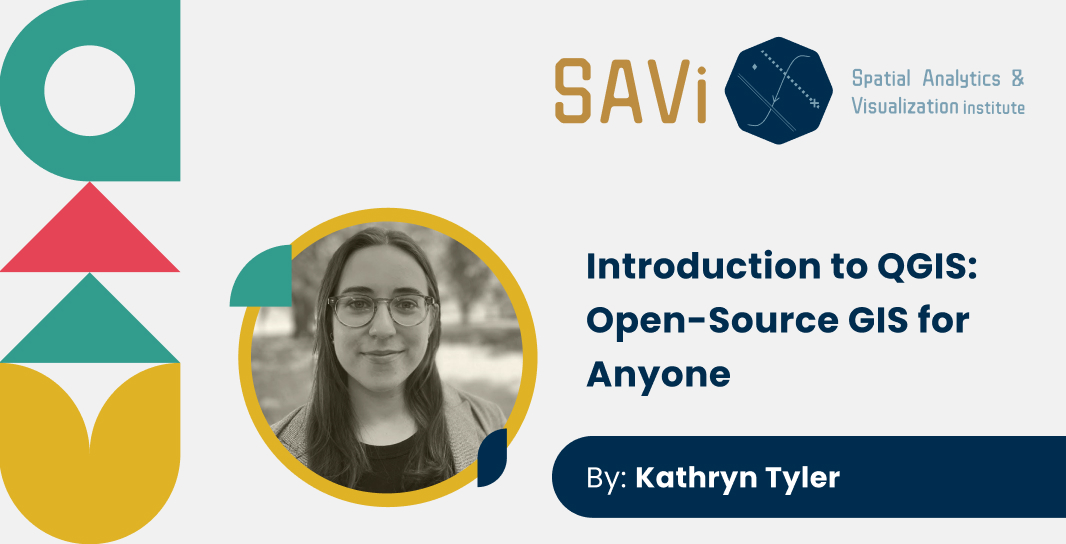Introduction to QGIS: Open-Source GIS for Anyone
Date/Time: November 13th 10:00 to 13:00
Location: Online
Instructor: Kathryn Tyler
This workshop is sponsored by the generous funding from the Public Interest Technology University Network grant to provide support for educational activities focused on equitable access to technologies.
Katie recently graduated with her master’s in geography from the University of Colorado Boulder. She spent the past two years of her master’s degree teaching GIS courses and conducting her own research using GIS to model bus networks and identify high priority areas for service adjustments. She now works for Upstream Tech on their Lens software which makes remote sensing more streamlined and accessible for more efficient conservation monitoring. Outside of all things GIS, Katie enjoys cooking, biking, and reading.
Workshop description:
This course serves as an introduction to QGIS, the free and open source GIS software. Whether you are looking to switch from ArcGIS or you are newer to GIS, this course will serve as an introduction to the QGIS user interface and will guide you through two introductory projects involving working with both vector and raster data, basic geoprocessing, creating a map layout, and web mapping with QGIS. In the first project you will create a choropleth map using census data. With this map, we will practice making both a traditional static map layout as well as exporting it to a web map. In the second project, you will work with raster and vector data to identify high priority areas for erosion control. Using geoprocessing you will identify areas in Stanislaus National Forest that have recently had a wildfire, are on a steep slope, and are near water.
Learning outcomes:
After completing this workshop you will be able to:
- Load data into QGIS. You will work with and load both vector and raster data into QGIS.
- Create a basic map layout in QGIS. You will create both a static map as well as a basic web map.
- Perform basic spatial analysis in QGIS. You will be exposed to the QGIS Toolbox and will learn how to use some geoprocessing tools including Buffer and Raster Calculator.
Workshop outline
- Introduction to QGIS interface
- Project 1: Census Choropleth Mapping, working with vector data
- Load in data - census tracts
- Symbolize data - choropleth map
- Create map layout - add legend, title etc.
- Export to web map - using QGIS2web plugin or just WMS like terrestris?
- Project 2: Natural resource management, working with raster & vector data
- Identify high priority areas for erosion control (places that have recently had a wildfire, are on a steep slope, and near water); this will likely be done for Stanislaus National Forest
- Load in data (DEM, lakes and streams, wildfire perimeters)
- Analysis
- Create buffer around water features
- Intersect water buffer with wildfire perimeters
- Create slope from dem, reclassify to 0 for relatively flat areas and 1 for steep areas
- Convert water/wildfire intersect to raster, do raster multiplication to find high priority areas for erosion control
- Questions (~15 minutes)
- Also provide links to additional resources
Workshop Prerequisites
- Download QGIS on your computer.
- Basic familiarity with cartographic principles and GIS helpful but not required.
Fees
Individual course fee:
Early bird registration (until Oct. 20, 2022): $275
Regular registration (From Oct. 21, 2022): $300
Full program fee (including all of the workshops):
Early bird registration (Until Oct. 20, 2022): $975
Regular registration (From Oct. 21, 2022): $1000
SJSU Student, register here for FREE!
